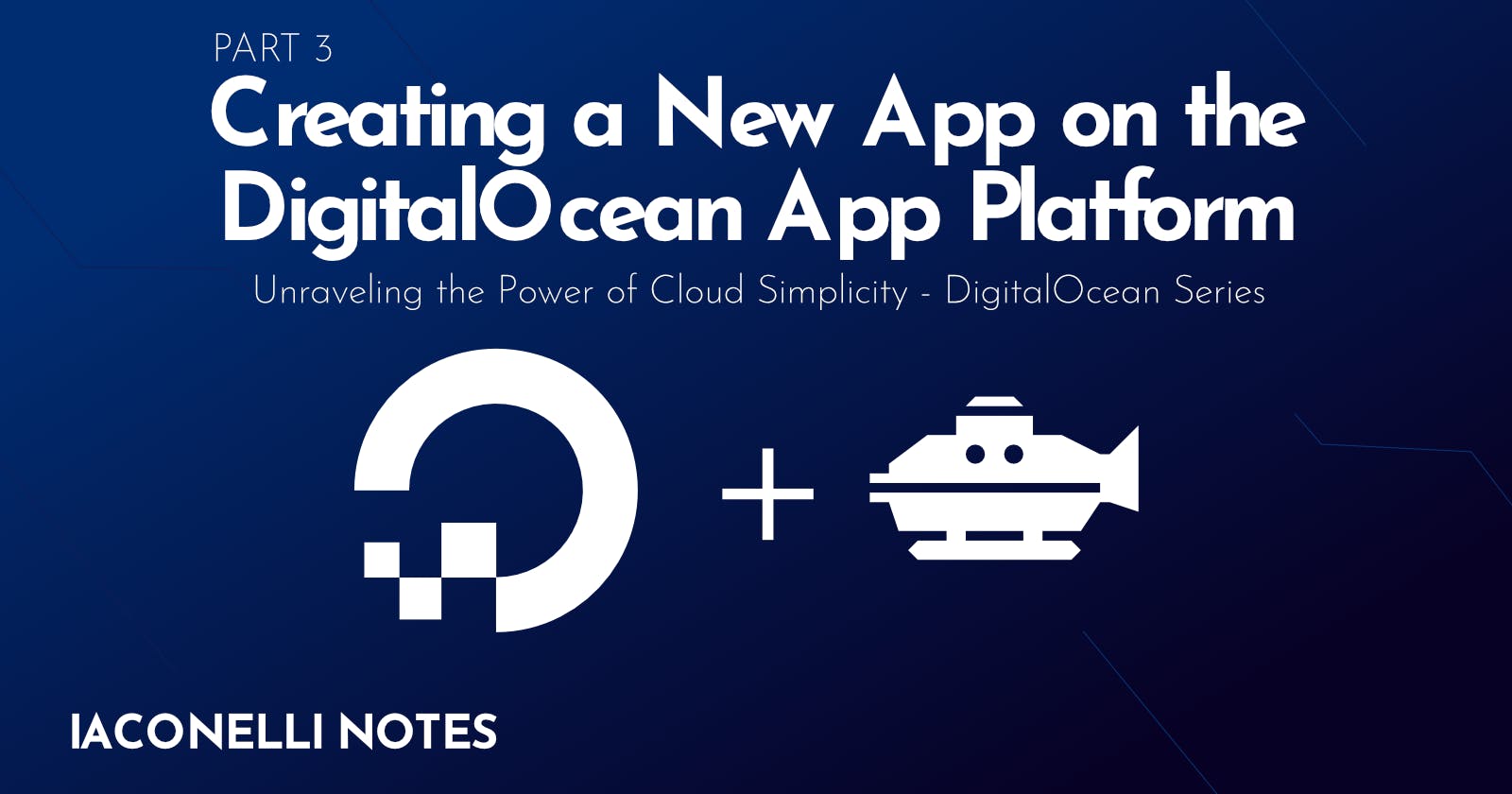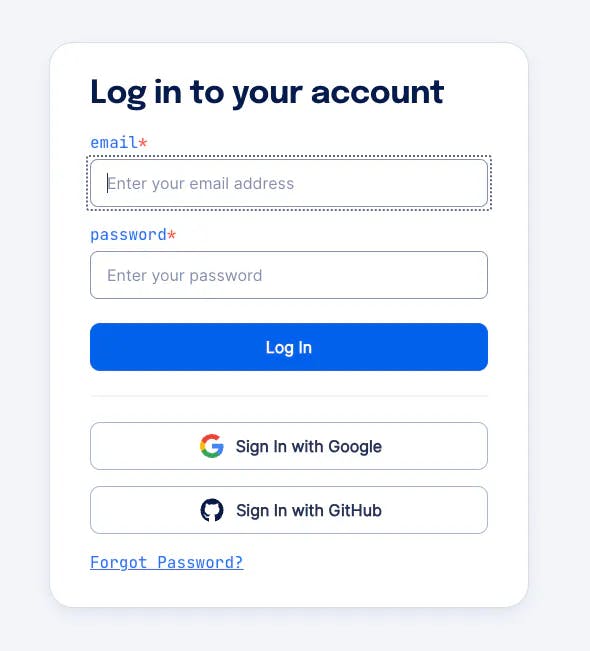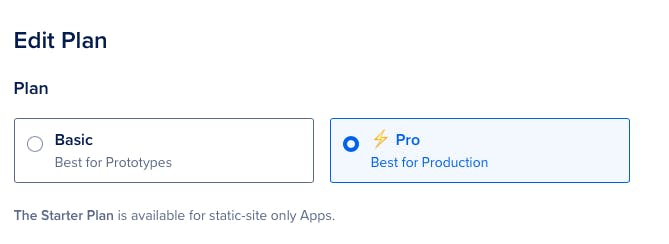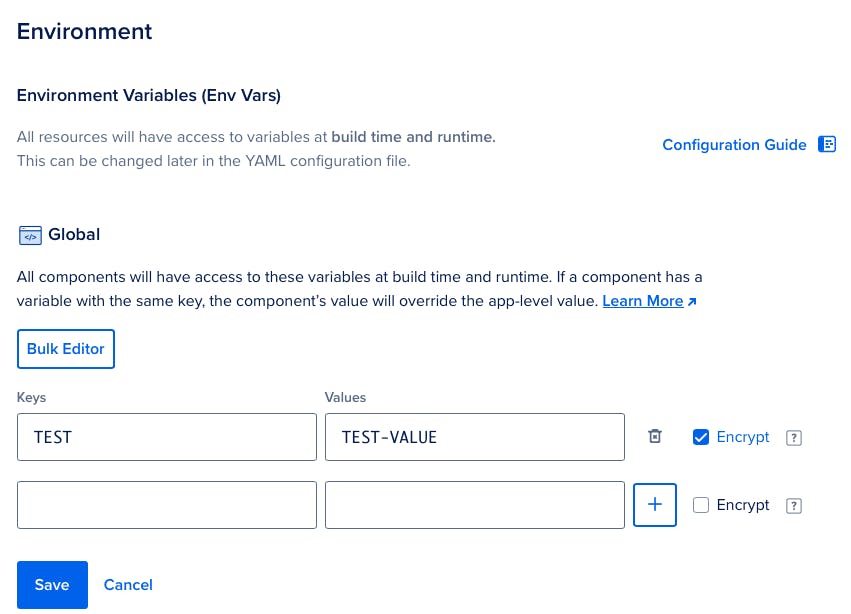Creating a New App on the DigitalOcean App Platform
Unraveling the Power of Cloud Simplicity - DigitalOcean Series - Part 3
4 min read

Hello, dear readers! It's exciting to welcome you back to the third part of my series diving deep into the world of DigitalOcean. Today, we're venturing into the heart of DigitalOcean's offering for developers and businesses alike—the DigitalOcean App Platform. Prepare for an extensive exploration of this powerful platform.
Unveiling the DigitalOcean App Platform
At the heart of DigitalOcean’s cloud ecosystem lies the App Platform, a comprehensive PaaS solution that embodies simplicity, efficiency, and scalability. Designed with developers and businesses in mind, it automates the complex processes of app deployment, management, and scaling, allowing you to focus more on development and less on infrastructure.
The App Platform is not just about deployment; it’s a testament to DigitalOcean's commitment to developer productivity and operational efficiency. By abstracting away the infrastructure layer, it offers a seamless pathway from code to production, ensuring your applications are running smoothly and securely with minimal setup.
What truly sets the App Platform apart is its deep integration with the rest of DigitalOcean’s services. This integration provides a cohesive environment that supports both the development and deployment phases of your application lifecycle. Whether you’re leveraging managed databases, scalable storage solutions, or integrated monitoring and analytics, the App Platform acts as the central hub for all your cloud services.
Continuous Deployment Made Easy
One of the core features of the App Platform is its native support for continuous deployment from GitHub, GitLab, and Bitbucket. This means every code push can automatically trigger a build and deploy process, ensuring your applications are always up-to-date with the latest changes. Furthermore, the platform's pre-configured containers and build environments dramatically reduce the time and effort required to get your applications off the ground.
Scale with Confidence
As your application grows, the App Platform scales with you. It intelligently manages infrastructure scaling, load balancing, and failovers, ensuring high availability and performance without the need for manual intervention. This auto-scaling capability, coupled with the platform’s built-in metrics and alerts, gives you peace of mind, knowing your application can handle growth and traffic spikes effortlessly.
Embrace the Ecosystem
Leveraging the broader DigitalOcean ecosystem, the App Platform integrates with Spaces for object storage, Managed Databases for data persistence, and VPC (Virtual Private Cloud) for network isolation. This ecosystem approach not only simplifies the architecture of your applications but also enhances security, performance, and reliability across the board.
In essence, the DigitalOcean App Platform represents a new era of cloud computing, where simplicity does not compromise power. It’s built for developers who demand efficiency and for businesses that require scalability and reliability. Whether you’re starting a new project or migrating an existing one, the App Platform provides the tools and services you need to succeed in the cloud.
Supported Frameworks
The App Platform is engineered to be as inclusive as possible, supporting numerous frameworks out of the box. Here's a list of some of the major frameworks supported:
JavaScript/Node.js: Build your backend services or full-stack applications using one of the most popular scripting languages.
Python: Whether it's a simple script or a complex application, Python's versatility shines on the App Platform.
Ruby: Ideal for web applications, especially those built with Ruby on Rails.
Go: Known for its efficiency and scalability, Go is perfect for high-performance applications.
PHP: Deploy your Laravel, Symfony, or custom PHP applications with ease.
Docker: For applications that require specific environments or dependencies, Docker support allows for immense flexibility.
This is just the tip of the iceberg, as the platform continuously evolves to include more technologies and frameworks.
Creating a New App on the DigitalOcean App Platform
Deploying your application on the DigitalOcean App Platform is straightforward. Follow these steps to get started:
Log into DigitalOcean: Access your DigitalOcean dashboard.

Navigate to the App Platform: Look for the "App Platform" section on the dashboard.
Create a New App: Click the "Create App" button.

Choose Your Source: Select the source of your code (GitHub, GitLab, etc.) and specify the repository.

Edit Plan: Choose the plan that best suits your needs.

Configure Your App: Choose the framework that matches your application. The platform automatically detects the project type and suggests configurations.

Set Up Your Environment: Configure environment variables and build commands if needed.

Launch Your App: After reviewing your configuration, click "Launch." The App Platform takes care of the rest, deploying your application in minutes.
Pricing
The DigitalOcean App Platform offers flexible pricing to match your project's needs:
Starter Plan: Ideal for small projects and hobby applications, starting at $5/month.
Basic Plan: For professional projects needing scalability, starting at $12/month.
Professional Plan: For businesses requiring advanced features and support, pricing begins at $25/month.
Each tier offers varying degrees of resources, support, and features, ensuring there's a plan that fits your specific requirements.
Wrapping Up
Thank you for joining me on this deep dive into the DigitalOcean App Platform. It's a powerful tool designed to streamline the deployment process, allowing you to focus on building great applications. Whether you're a solo developer or part of a larger team, the App Platform has something to offer.
Stay tuned for the next part of our series, where we'll explore another facet of DigitalOcean's ecosystem. Until then, happy coding!
